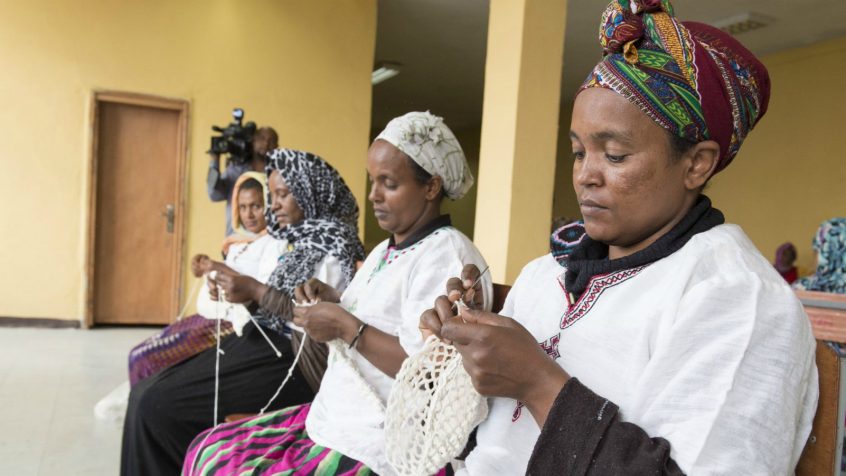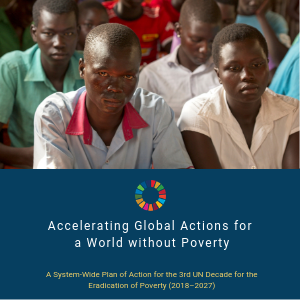Poverty Eradication

Poverty entails more than the lack of income and productive resources to ensure sustainable livelihoods. Its manifestations include hunger and malnutrition, limited access to education and other basic services, social discrimination and exclusion as well as the lack of participation in decision-making. Various social groups bear disproportionate burden of poverty.
Social Inclusion

The World Summit for Social Development in Copenhagen in 1995 defined an inclusive society as “a society for all’, in which every individual, each with rights and responsibilities, has an active role to play (United Nations, 1995, para 66). Such an inclusive society is equipped with mechanisms which accommodate diversity, and facilitate/enable people’s active participation in their political, economic and social lives.
Employment and Decent Work

Unemployment and underemployment lies at the core of poverty. For the poor, labour is often the only asset they can use to improve their well-being. Hence the creation of productive employment opportunities is essential for achieving poverty reduction and sustainable economic and social development. It is crucial to provide decent jobs that both secure income and empowerment for the poor, especially women and younger people.
Inequality

Equality can be understood as parity in the enjoyment of fundamental rights and freedoms, and equality of opportunities with regards to education and work and the fulfillment of one’s potential. Equity relates to a degree of equality in the living conditions of people, especially in terms of income and wealth, that society considers desirable. Reduction of inequalities is then justified by equity considerations.


Follow Us